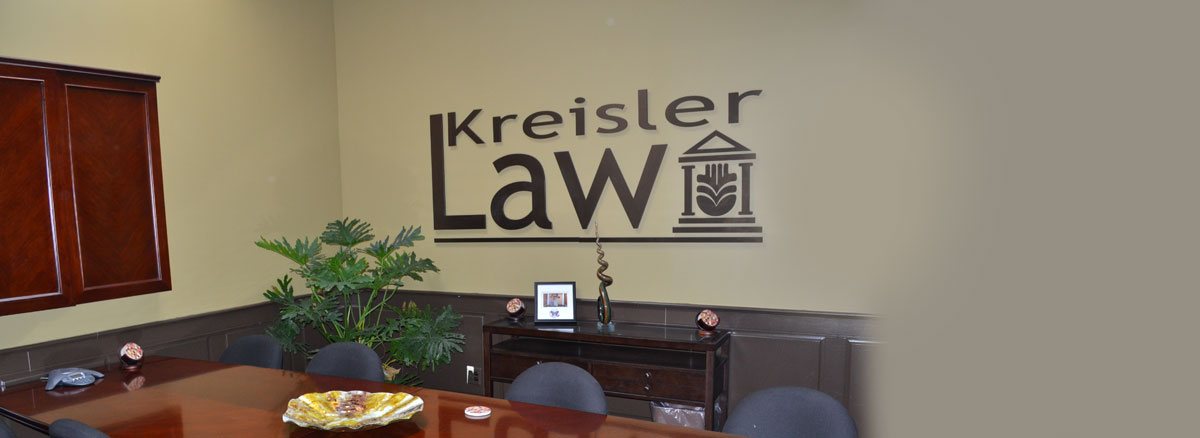
The Use of Evictions in Condominium Assessment Collection
Illinois condominium associations have an extremely effective tool for collecting assessments from delinquent condominium unit owners. In Illinois, a condominium association can actually evict a unit owner from his or her unit and then lease the unit out and collect the rents from the unit to pay for past due assessments, the legal expenses of pursuing the eviction as well as currently accruing assessments. The association does not have to pay the mortgage payments or real estate taxes which accrue while the rents are being applied against assessments and expenses of collection.
The condominium eviction process takes four months or more, so associations need to be diligent in asserting their rights. This is especially true in that unit owners who are delinquent in paying their assessments often are also delinquent in making their mortgage payments, eventually resulting in mortgage foreclosure.
To move forward with a condominium eviction, the association must first prepare and serve a 30 day notice and demand for possession. This notice must be mailed to the unit owner by certified mail. When thirty days have passed without the assessments having been paid, the eviction suit may then be filed. The suit is filed as what is called a “joint action”, which seeks a personal judgment against the unit owner as well as an order of possession (eviction order). When the matter reaches trial, the eviction statute requires the court to stay the enforcement of the eviction order for at least sixty days. Only then may the association employ the Sheriff to secure possession of the unit.
Feel free to contact a Logan Law, LLC condominium attorney, if you have any questions regarding the rights and responsibilities of delinquent Illinois condominium association unit owners, regarding collection of delinquent condominium assessments or if you need assistance or advice regarding other areas of condominium law.
The Role of an Eviction in Defaulted Illinois Contract Sales
When a real estate seller is willing to finance his buyer’s purchase of the property being sold with a relatively small down payment, it is common for the transaction to proceed by what is called a contract sale or an installment contract for deed. Under that form of transaction, the seller does not execute and record a deed when the transaction closes and possession of the property is transferred to the buyer. Instead, the parties execute a document under which the buyer agrees to make payments and to insure and maintain the property and the seller agrees when the seller has been paid as agreed, a deed will eventually be delivered.
When a buyer defaults under the contract, the seller is faced with the problem of how to terminate the contract and get his property back. The contract sale document will provide that after default and upon notice, the contract may be terminated and all prior payments forfeited. However, that does not put the contract seller back into possession of the property.
Restoration of possession requires the use of the Illinois Forcible Entry and Detainer Act, which is contained in the Illinois Code of Civil Procedure (“CCP”). Section 5/9-104.1 of the CCP requires that a demand be served on the buyer giving at least 30 days to satisfy the demand before suit may be filed. The case then proceeds like any other eviction, except that in entry of the eviction judgment, the court may stay the enforcement of the judgment for up to 60 days where more than 75% of the original purchase price remains unpaid but in cases where less than 75% remains unpaid, the Court is required to stay enforcement of the order for 180 days. The court may grant a shorter stay even where than 75% of the original purchase price remains unpaid, if the plaintiff can show that plaintiff had granted previous extensions of the time to pay or for other good cause shown.
Feel free to contact an Illinois attorney experienced in handling all aspects of real estate transactions and litigation at Logan Law, LLC if you have questions about sale of your Chicago area real estate or any other area of the laws governing real estate.
Expiration of Illinois Eviction Judgments
Illinois Eviction judgments can be somewhat ephemeral, in that they become unenforceable 120 days after the judgment is entered. This can become important during Chicago winter months, when the Cook County Sheriff’s eviction backlog grows longer due to the usual year-end Holiday moratorium declared by the Sheriff and due to the fact that evictions are not performed on unusually cold or inclement days.
The period of enforcement of an eviction order which is about to expire or has expired may be extended by motion. However, notice of that motion must be sent to the defendants and must contain specific statutory language found in section 5/9-117 of the Illinois Code of Civil Procedure.
The motion to extend will be granted by the court unless the defendant appears and establishes that the tenancy has been re-instated, that the breach upon which the judgment was based has been cured or waived, that the plaintiff and defendant entered into post-judgment agreement the terms of which the defendant has performed, or that other legal or equitable grounds exist that bar enforcement of the judgment.
Feel free to contact an experienced Illinois landlord eviction law attorney at Logan Law, LLC if you have questions about how to properly serve eviction notices or any other area of the laws governing landlords and tenants.
The Special Nature of Illinois Eviction Proceedings
Illinois evictions are governed by the Forcible Entry and Detainer Act (the “Act”). That Act is designed to deal with the termination of the relationship of landlord and tenant and must balance the rights of both landlords, who generally are relying upon the rental income of their properties to pay their mortgages, and tenants, who are using the landlord’s property for their home or business.
In balancing the interests of landlords and tenants, the Illinois legislature created an expedited proceeding, focused upon who has the right to possession of the apartment or commercial space. Because of this, the Act specifically limits issues which may be raised in defense of an eviction proceeding. Section 106 of the Act specifically provides that “no matters not germane to the distinctive purpose of the proceeding shall be introduced” in defense of the proceeding.
The bottom line of the limitation to matters “germane” to the issue of possession is that the Courts have prohibited eviction defendants from raising such issues as a claim that the landlord owes the tenant money for a contract dispute between the parties or that the landlord has violated anti-trust laws. On the other hand, the Courts have specifically permitted defenses based upon the habitable condition of residential premises, violation of Chicago’s Residential Landlord and Tenant Ordinance and racial or other discrimination having motivated initiation of the eviction proceeding.
Feel free to contact an experienced Illinois landlord eviction law attorney at Logan Law, LLC if you have questions about how to properly serve eviction notices or any other area of the laws governing landlords and tenants.
New Procedures Announced in Daley Center Eviction Cases with Jury Demand
Effective April, 2015, the Presiding Judge of the First Municipal District of the Circuit Court of Cook County, Illinois announced a new procedure for eviction cases where the defendant files a demand for a jury trial.
Eviction cases which are assigned to the Daley Center are initially assigned at random to one of five courtrooms which hear only non-jury cases. Under the new procedure, when a defendant files a demand for trial by jury, the case is then transferred to room 1301 on a Tuesday, Wednesday or Thursday within ten (10) days after the transfer order is entered. On the appointed day, the case is then assigned to a jury trial judge and courtroom.
All further matters in the case, including motions for discovery and for use and occupancy, are then heard by the assigned jury trial judge.
This replaces the current procedure under which jury cases were re-assigned to a single courtroom (Courtroom 1501) and all motions or other proceedings before trial were handled in Courtroom 1501. Under current practice, the case was only transferred to a jury trial judge on the date of trial
Feel free to contact an experienced Illinois landlord eviction law attorney at Logan Law, LLC if you have questions about the new procedure or any other area of the laws governing landlords and tenants








